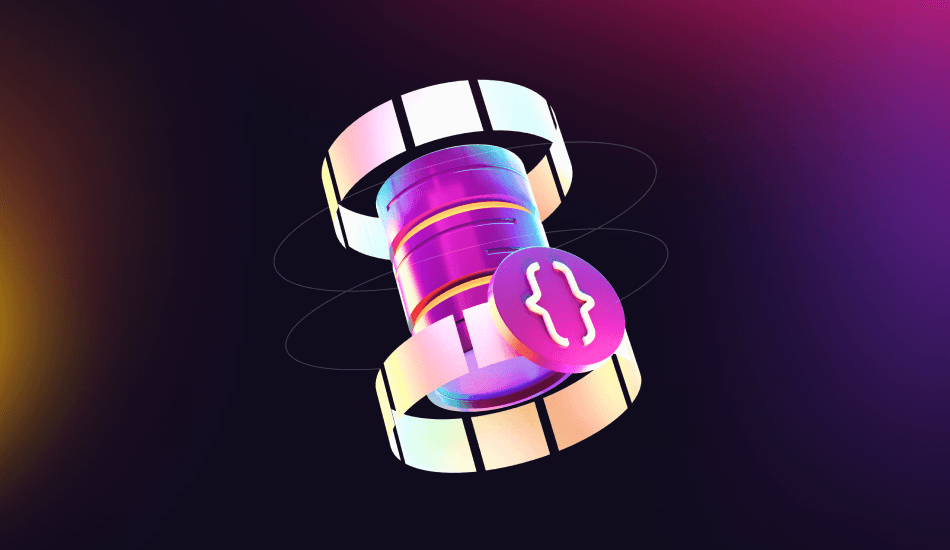NoSQL use cases: when to choose a NoSQL Database, and why

Modern applications generate and process more data than ever: often at massive scale, in varying formats, and under intense performance demands. From mobile apps and content platforms to IoT systems and global SaaS products, the shape of data is evolving faster than relational databases can keep up.
NoSQL cloud databases (short for “Not Only SQL”) offer a flexible, scalable solution for handling this complexity. But when does it make sense to adopt NoSQL? What problems does it solve better than traditional databases?
In this post, we explore three common and high-impact use cases for NoSQL, backed by real-world examples, and explain why it's the right choice in each scenario.
1. Real-Time product analytics and event tracking
Digital products today are instrumented to capture everything from button clicks and page views to user flows and performance metrics. This event data helps teams monitor usage trends, flag anomalies, and make data-informed decisions.
Why NoSQL?
NoSQL document databases like MongoDB excel at storing event logs in JSON format. Each log entry can have a different schema, allowing teams to iterate quickly as new tracking events are introduced. These databases are also built to handle high write throughput and scale horizontally.
In practice: Netflix
Netflix logs billions of user interactions per day to understand viewing habits, feature usage, and platform health. Their data infrastructure relies heavily on NoSQL databases and document stores to collect, query, and analyze this information in near real time, powering both product insights and user-facing recommendations.
2. Content management and omnichannel delivery
Managing dynamic content - articles, videos, product catalogs, user submissions - requires a system that can handle a wide range of structures and frequent updates without downtime or re-architecture.
Why NoSQL?
Document stores such as MongoDB allow each content item to be stored independently, accommodating unique metadata and structures. Their schema flexibility simplifies integration with content APIs, mobile apps, and headless CMS platforms.
In practice: The New York Times
The New York Times uses a document-oriented approach to manage thousands of content types across its digital properties. With NoSQL, the company can rapidly ingest, enrich, and deliver content in personalized feeds across web, mobile, and third-party platforms.
3. IoT and time-series data ingestion
From smart thermostats and manufacturing sensors to fleet trackers and health devices, IoT deployments generate massive volumes of telemetry data that must be stored, queried, and analyzed efficiently.
Why NoSQL?
Wide-column NoSQL databases are designed for high-write, low-latency workloads. They store time-series data efficiently and scale horizontally across commodity hardware, making them ideal for use cases involving real-time monitoring and alerting.
In practice: Bosch
Bosch, a global leader in industrial IoT, relies on scalable NoSQL databases to manage time-series sensor data from manufacturing equipment. This data is used to predict maintenance needs, optimize processes, and reduce downtime - all in real time.
Why choose Scaleway’s Managed MongoDB® for your NoSQL needs?
When implementing any of the NoSQL use cases discussed above - whether it’s powering real-time analytics, managing diverse content, or ingesting IoT data points - Scaleway’s Managed MongoDB® provides the ideal foundation. Part of our comprehensive cloud database solutions, it brings together MongoDB’s industry-leading technology with Scaleway’s sovereign, AI-driven cloud infrastructure, freeing your teams from the operational overhead of database management.
This means no more manual updates, maintenance tasks, or scaling headaches, just consistent performance and more time to focus on innovation - just like with all of our DbaaS (Database as a Service) solutions. With built-in cost optimization, seamless scalability, and compliance-ready hosting in European data centers, Scaleway’s Managed MongoDB® ensures your data stays secure, your operations efficient, and your team empowered to move faster and smarter.
Final thoughts
NoSQL cloud databases have evolved into mission-critical tools for organizations that prioritize agility, performance, and scalability. They're particularly well-suited for use cases involving:
- High-velocity or semi-structured data
- Complex, evolving data models
- Real-time analytics and decision-making
- Geo-distributed users and systems
Choosing NoSQL doesn’t mean giving up on structure or performance; it means embracing the kind of flexibility that modern data demands.
Interested in how NoSQL can work for your application? Learn more about our Managed MongoDB® database and start building faster, more scalable products.
